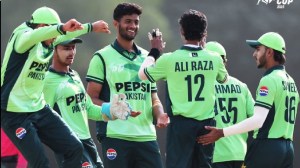Khairlanji case: Nikam to counter defence today
Even as the last of the three defence lawyers, Sudip Jaiswal, completed his final arguments in the Khairlanji case hearing...

Even as the last of the three defence lawyers, Sudip Jaiswal, completed his final arguments in the Khairlanji case hearing on Wednesday, all eyes will be on Special Public Prosecutor SPP Ujjwal Nikam on Thursday to see how he counters the defence8217;s spirited arguments over lack of clarity over the probable motive behind the four murders.
CBI lawyer Ejaz Khan had to spell out the prosecution view during last month8217;s final arguments due to Nikam8217;s absence 8212; the SPP was reportedly indisposed. Khan had argued from the caste-hatred point of view to explain the motive behind the murders.
Siddharth Gajbhiye, an influential landlord from a neighbouring village, and Bhotmanges8217; family friend, was allegedly assaulted by some villagers on September 3, 2006. Surekha Bhotmange had named the alleged assailants in his police complaint. The accused persons were presented before a court at Mohadi town nearby, which had released them on bail since the police hadn8217;t made out an Atrocities Act case that would have ensured their custody. After they were released on September 29, they had allegedly first looked around for Siddharth and his brother Rajen at a neighbouring village along with a few other villagers, and on failing to find them, had turned on the Bhotmanges and allegedly killed Surekha, her sons Sudhir and Roshan and daughter Priyanka in a fit of rage.
Siddharth8217;s largely silent testimony in the court during his cross-examination over his own assault case, a point well made out by the defence lawyers, has made the prosecution position awkward. Siddharth only said that he was assaulted by a few villagers but didn8217;t take any names, even from amongst the 11 accused persons.
Clearly, no motive could be attributed to the accused persons who are being tried for the four murders. That may perhaps have forced CBI lawyer Khan to turn to the caste angle. Khan also said that law and order was a state subject and that the state had failed to protect the Dalit family.
That, however, contradicts what CBI8217;s own witness Suresh Khandate told the court. He had clearly said that there was no caste feud in the village. This was corroborated by a few other CBI witnesses.
The curios thing now is: what will SPP Nikam say about all this on Thursday, especially when he represents not only the victims but also state which the CBI lawyer has accused of failing to protect the 8220;Dalit8221; family?
- 01
- 02
- 03
- 04
- 05































